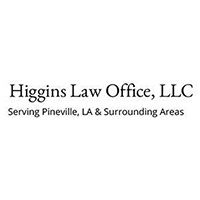Jonesville Felony Lawyer, Louisiana
Sponsored Law Firm
-
 x
x

Click For More Info:
-
Babcock Trial Lawyers
10101 Siegen Ln #3-C Baton Rouge, LA 70810» view mapCriminal Defense We Want Your Injury Claim PAID NOW!
At Babcock Trial Lawyers, we work for our clients, maintaining our reputation of excellence as criminal defense & personal injury lawyers in Baton Rouge.
225-500-5000
Not enough matches for Jonesville Felony lawyer.
Below are all Jonesville Criminal lawyers.
George Higgins
✓ VERIFIEDCriminal, Accident & Injury
George Lewis Higgins III received his Juris Doctor degree in 1979 from Paul M. Hebert Law Center at Louisiana State University in Baton Rouge. Mr. Hig... (more)
Benjamin David James
State Appellate Practice, Family Law, Criminal, Personal Injury
Status: In Good Standing Licensed: 14 Years
J. Marc Lampert
Criminal, Divorce & Family Law, Divorce, Family Law
Status: In Good Standing Licensed: 51 Years
FREE CONSULTATION
CONTACTErnie L Vallery
Accident & Injury, Criminal, Divorce & Family Law, Employment
Status: In Good Standing Licensed: 43 Years
Richard V Burnes
Federal Trial Practice, Criminal, Civil & Human Rights, Personal Injury
Status: In Good Standing Licensed: 62 Years
Thomas Rockwell Willson
Criminal, Elder Law, Credit & Debt, Personal Injury
Status: In Good Standing Licensed: 46 Years
Leo Joseph Flynn
Criminal, Divorce & Family Law, Employment, Estate
Status: In Good Standing Licensed: 13 Years
 Stephen Babcock Baton Rouge, LA
Stephen Babcock Baton Rouge, LA Practice AreasExpertise
Practice AreasExpertise

